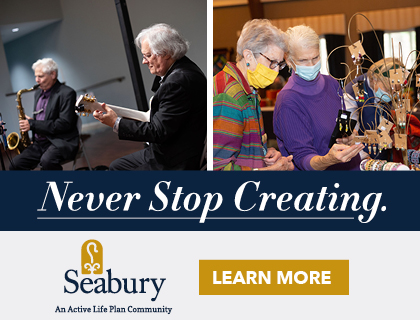World Premiere: August 22, 2019
Most Recent HSO Performance: This is the HSO’s first performance of this work
Instrumentation: 3 flutes, 3 oboes, 3 clarinets, 3 bassoons, 4 horns, 2 trumpets, 3 trombones, tuba, timpani, percussion, harp, piano, and strings: violin I, violin II, viola, cello, and bass
Duration: 6'
All American (2019)
Laura Karpman
(Born March 1, 1959 in La Jolla, California)
Laura Karpman is a woman of remarkable and varied accomplishments — one of the best-known and most prolific female composers for films, television, theater and video games, winner of a Grammy Award and five Emmys, composer of dozens of orchestral and chamber works and five operas (including Ask Your Mama, based on a text by Langston Hughes and created in collaboration with Jessye Norman, which premiered at Carnegie Hall in 2009), first American female composer inducted into the Music Branch of the Academy of Motion Picture Arts and Sciences and first female elected Governor of the Music Branch, teacher in the film and television programs at USC, UCLA and San Francisco Conservatory, advisor to the Sundance Film Institute, and a tireless advocate for female musicians as founder of the Alliance for Women Film Composers.
Laura Karpman, born in 1959 in La Jolla, California, was exhibiting exceptional musical talent by age seven and grew up composing and performing classical music. She did her undergraduate studies at the University of Michigan with Pulitzer Prize-winners William Bolcom and Leslie Bassett before earning master’s and doctoral degrees at Julliard, where her principal teacher was the modernist Milton Babbitt, another Pulitzer winner. Karpman spent a decade in New York, studying, composing concert works (for which she won an Ives Fellowship from the American Academy of Arts and Letters), and gaining income and experience as a jazz piano player and singer in the city’s bars. She also studied at the Aspen Music School and in Paris with the legendary pedagogue Nadia Boulanger, and participated in the Sundance Institute Film Music Program, where she worked with composers David Newman, Dave Grusin, David Raksin and Shirley Walker (one of the first women to receive sole music credit for a Hollywood film). Karpman moved to Los Angeles in 1989 and quickly established herself in the business with her music for television movies. She has since garnered some 140 credits for documentaries, TV movies and series, theatrical releases and video games, including Paris Can Wait (starring Diane Lane and Alec Baldwin), Black Nativity (Forest Whitaker, Angela Bassett, Jennifer Hudson), Breakup (Bridget Fonda, Kiefer Sutherland), The Annihilation of Fish (Lynn Redgrave, James Earl Jones), the video game EverQuest II, and Steven Spielberg’s Emmy-winning miniseries Taken. Among Laura Karpman’s additional honors are residencies at Tanglewood, MacDowell Colony and Sundance Institute, and two ASCAP Foundation grants.
Karpman wrote of All American, commissioned and premiered by the Los Angeles Philharmonic in 2019, “When I received a commission to write an overture to open a Hollywood Bowl concert featuring entirely American music, I knew I could call it ‘All American’ and find something to write about that would come out of my interests and would be lovely for a summer evening. My first instinct was to go to patriotic music, perhaps something well-known, like Sousa or another very American anthem, and play with that as motivic material. Then an idea jumped into my head — I had been thinking a lot about the pervasive invisibility of women composers in music history. We tend to believe that there were very few, if any, women composers in past centuries, but I’ve begun to think that maybe there were women composers, lots of them, and that their works have been unrecognized, un-amplified. I set out looking for patriotic songs by American women composers, and, much to my surprise, I found not one or two, but hundreds.
“I have taken three of these songs and used them as thematic material in what has become a very American anthem called All American. There is still a Sousa quote that sneaks in and hidden references to other works, but listen for the very patriotic melodies in the song March On, Brave Lads, March On! by Mildred Hill (composer of the best-known song in the English language, Happy Birthday), and in Emily Wood Bower’s Your Country Needs You and Anita Owen’s ’Neath the Flag of the Red, White, and Blue. All American is dedicated to those women.
“Underneath these quotes is an uneven but propulsive rhythm and melody. For me, this is an analogy to women’s advancement, moving forward in a positive direction, but always with a little bit of a trip, a hiccup. This propulsion is powered by percussion instruments, many of which are derived from kitchen tools partnered with very traditional band percussion. You’ll hear a baking sheet playing along with the snare drum, silverware used instead of a triangle, pots and pans substituting for tubular bells, a butcher block played with a meat tenderizer, trash bins joined with orchestral toms, and, my favorite, my beloved Le Creuset 5-quart braiser used as an anvil. Please enjoy All American.”
©2021 Dr. Richard E. Rodda
